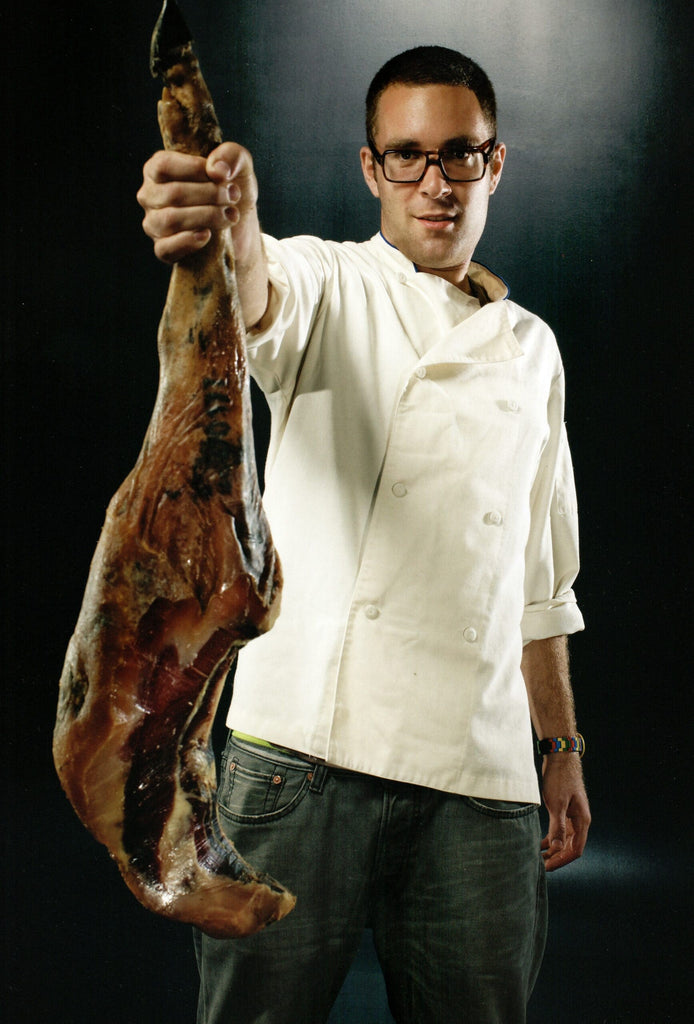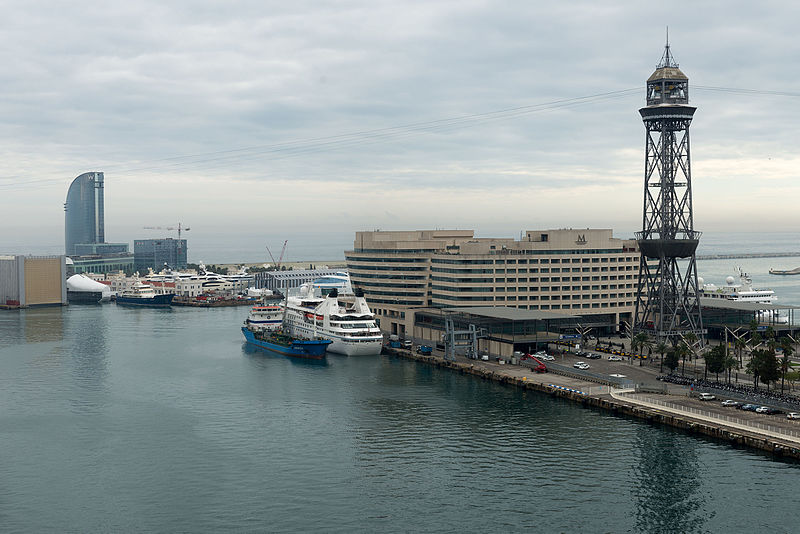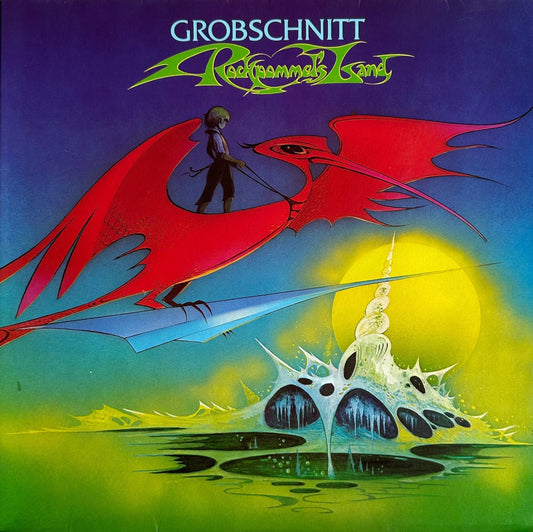I come from a family of smugglers.
“Have you anything to declare?” the customs agent said as he pulled my father’s car apart.
“No, nothing. Nothing at all,” said my dad.
I was young and we had just returned to the UK from my first visit to France. Long before motorways, the drive from Glasgow to Lydd airport in Kent, in the south of England, was slow, but it kindled in this eight year-old kid a nascent love of travel. France, for me, was fun and very different. We stayed in the summer house of my father’s uncle. It was located in Villers-sur-Mer, not far from Deauville in Normandy. A big old house with many rooms and outside, a long dining table sheltered by grape vines. It was in this arbor that every evening, our large extended family ate massive quantities of food.
I wasn’t much of an eater then but I noticed that everyone else around me consumed huge portions of meat and seafood along with vegetables, potatoes and baguettes. The contrast between rural France and industrial Scotland was palpable. Perhaps it was this first overseas vacation that ignited in me, the idea of permanently leaving Scotland for more interesting places.
We had taken the car on a plane both ways. This was a service operated by the long defunct Silver City Airways that flew cars and passenger from Lydd airport to Le Touquet airport in France. (Lydd was the same airport that shipped James Bond’s Aston Martin DB5 to France in the movie Goldfinger.)
On arrival in back in Lydd, we went through customs. Ever suspicious, the customs agents asked us to leave the car while they removed our luggage and searched it. Nothing found, we continued on our journey north. I cheered as we crossed the border from England into Scotland at the small town of Gretna.
It was only years later that I discovered that my father had filled the car’s windshield washer fluid compartment with pure alcohol, which was legal in France but highly illegal in the UK.
* * *
My father escaped from Germany in 1938. Somehow getting an agricultural visa to the UK, he managed to leave legally before war broke out. On his way to England, he met up with his uncle in Calais, France. His uncle had been doing business in England when Hitler closed the border, thus exiling him. They took the ferry together and on approaching Dover, his uncle handed him a small sachet and asked that he put in his pocket and say nothing. On passing through customs, his uncle was quite thoroughly searched. My father, who was literally fleeing for his life, was allowed through without encountering any problems. On the train to London, my father opened the bag and it contained diamonds. I often wonder what would have happened to him had he been caught.
* * *
In 1966, Ivor Tiefenbrun from Linn Products and I took a drive through Europe. At that time there were currency restrictions and I think the maximum you could take out of the country was fifty pounds, which wasn’t a lot for a two-week holiday. I decided to smuggle some dollars with the convoluted idea that if caught, I wasn’t technically breaking the law. I had also heard that the exchange rate in Italy was favorable to dollars. My cousin Clifford was in the ancient coin business and somehow had access to dollars. On reaching the Dover ferry, I stuffed them down my underpants and hoped no one would stop me. I needn’t have worried as we passed the customs point unhindered and made our way into France. A few days later we arrived in San Remo and waited for a friend, who, like Godot, never arrived. I decided to change my dollars. I had been reliably informed that waiters were the people to approach for good rates. I ordered an espresso.
“Do you want to buy some dollars?” I asked the waiter.
He looked at me quizzically. “Dollars? You have condoms?”
“No,” I replied. “Just dollars.”
“Don’t want dollars. You have condoms I get you good price. Five dollars each.”
I tried another café with pretty much the same response. I thought I’ll try the next town. Our next stop was La Spezia.
“Would you like some dollars?” I questioned.
“No, but I’ll buy condoms.”
On my third of fourth try I asked why everyone wanted condoms.
“Condoms are illegal in Italy,” a local informed me. “The Vatican is against birth control so I can get a large price for them. Do you have any?”
Apparently stuffing condoms down my underpants would have been a better bet.
* * *
In 1938, my mother-in-law, Erna (who as I write this, in May 2020, is 101 and lives, virus free, alone in Queens, New York) fled from Vienna, Austria to Palestine. In the early 1950s, due to a polio outbreak in the country, she decided to take her then only child, Miriam, to Europe to escape the virus. At that time Israel had severe currency restrictions. Erna decided to buy dollars on the black market and smuggle them out of the country. She bought packs of chewing gum and after carefully removing the gum from the silver paper, she substituted it with folded dollar bills. She also bought a child’s handbag and put the gum inside. She then told her five-year-old daughter that as she was travelling to Europe, she needed to look elegant and that she must carry the handbag at all times.
On arrival at the boat she was summoned into a room where a customs officer strip searched her. She suspected that the man who sold her the dollars informed the police that she was carrying currency. After a few minutes, the woman who was searching her looked at her name and said, “Erna Frischer?” Are you related to Artek Frischer?”
“Yes,” she replied. “He’s my cousin.”
(Artek was a ship’s engineer for Zim Lines, the Israeli shipping company.)
“I know him well,” said the officer. “Are you smuggling currency?”
“Would I do such a thing?” replied Erna ambiguously.
The officer looked at her quizzically. “It’s OK, you can go.”
She left and collected her daughter who was sitting patiently, outside the room, clutching her new handbag.
* * *
Shortly after my son, Ilan, won Top Chef, we took a family holiday to Barcelona. Along with its beauty, culture, history and people, Barcelona is a fabulous food town. The restaurants and the markets are a food lover’s dream.
One of the most celebrated foods in Spain is Jamon Iberico. This ham is made from black pigs, and the most famous of them is called “Jamón Ibérico de Bellota.” These are the pigs that are fattened up with acorns in the oak forests of western Spain. After the pigs are slaughtered and the ham is curing, the antioxidants in the acorns change the saturated fat into unsaturated fat. Who knew that ham could be healthy?
The day before we returned home Ilan and I went shopping for a ham. It had to be “pata negra” (black-hoofed) and “bellota” (acorns). We visited many markets before Ilan settled on one that met his approval. It cost around 450 euros. Almost 4 foot long, he then had to go shopping for a bag long enough to contain it. As we walked through the streets, people stopped us and on seeing the black hoof sticking out, complimented us on our choice.

The next day, after eight hours in a plane, we arrived in JFK airport. Everywhere, there were signs advising travelers that they are subject to a $10,000 fine if they do not declare meat and animal products. On seeing this, my wife and I said, “Ilan, you are on your own.” And we left him with his ham.
Half an hour later, we got a call.
“Dad, I’ve been arrested.” My heart stopped. Then, “Just kidding. No one stopped me.”
The following morning, Ilan had a gig on Good Morning America, a national TV show.
Not content with having smuggled a ham through customs, he brought it to the studio and live on TV, declared, “I just brought this in from Spain yesterday.”
Header image courtesy of Wikimedia Commons/Ralf Roletschek.



